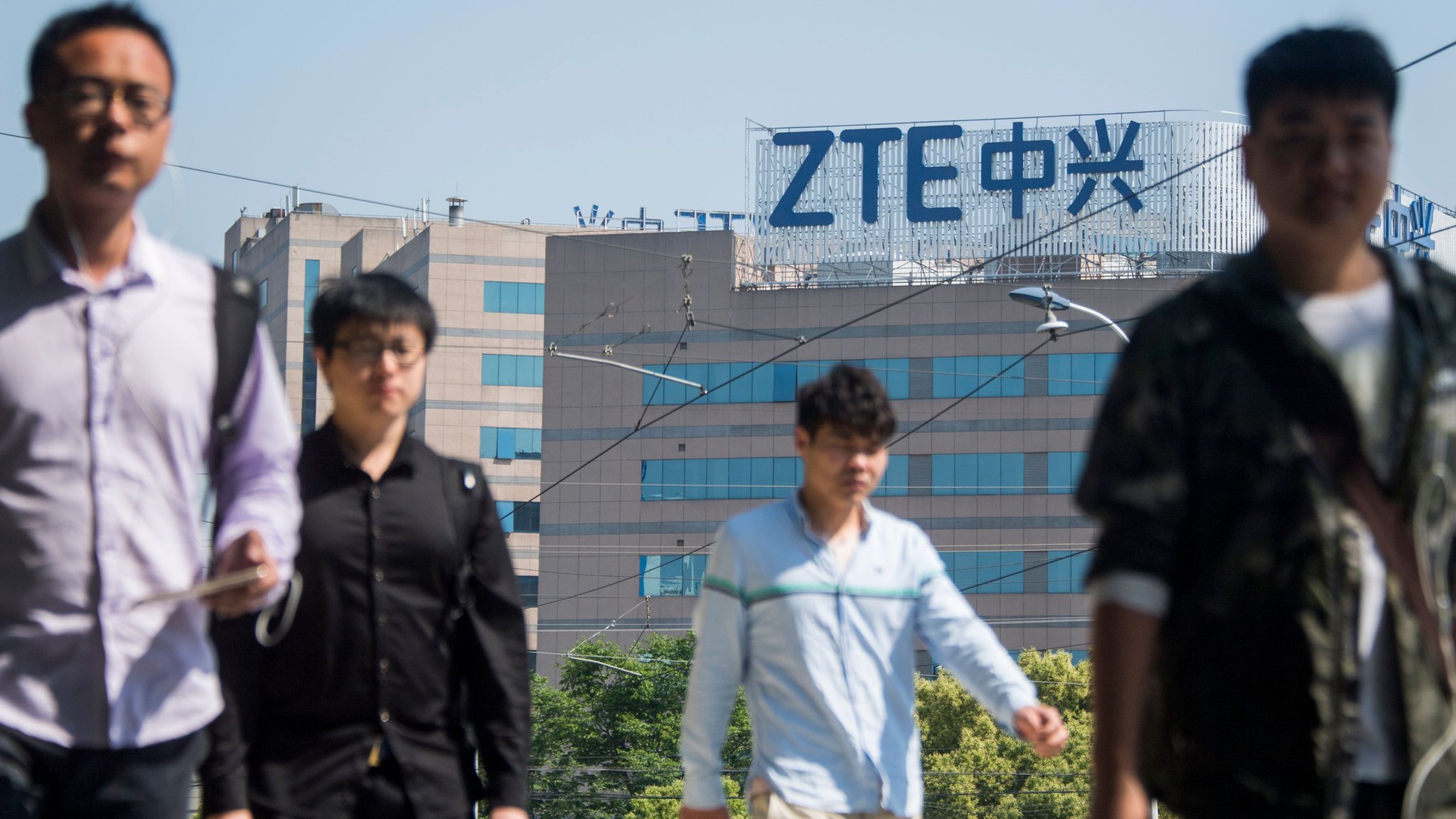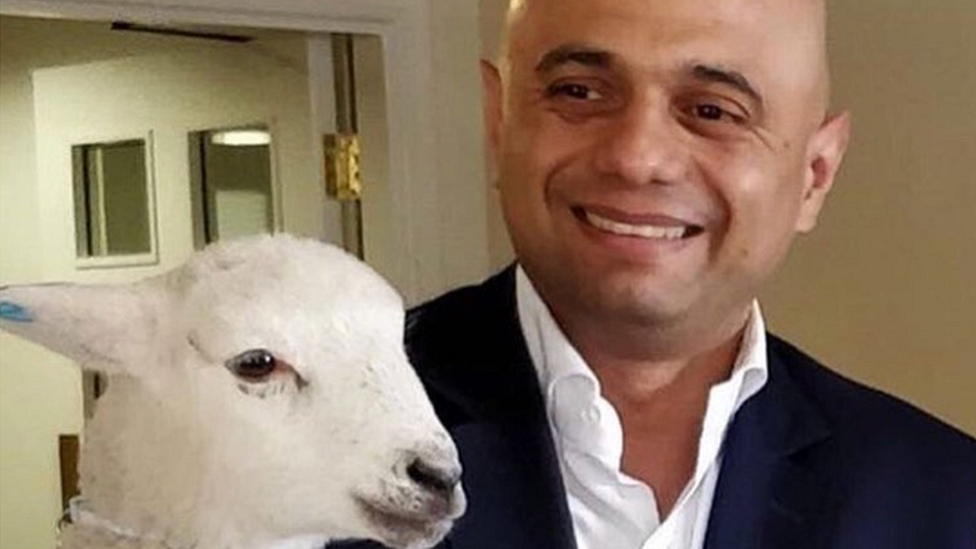Technology


China has welcomed a pledge from Donald Trump to help save ZTE, one of China's biggest telecoms companies.
The firm has suspended operations after the US last smonth banned American companies from selling it components. ZTE had admitted to making illegal shipments to Iran and North Korea.
But Mr Trump has now tweeted he
- Details
- Category: Technology
Read more: Trump seeks to save Chinese jobs at ZTE ahead of trade talks
Write comment (95 Comments)

The California rocket company SpaceX has conducted what is arguably its most important launch to date.
Flying out of Florida, the firm’s Falcon-9 vehicle lifted a standard t
- Details
- Category: Technology
Read more: SpaceX flies 'lessons learned' rocket
Write comment (93 Comments)

Conservative MPs have been encouraged to show they are "real people" by being "playful" on Instagram, according to a document leaked to the TheIndianSubcontinent.
Earlier this year, party
- Details
- Category: Technology
Read more: Revealed: Advice to Tory MPs on how to be 'real' on Instagram
Write comment (93 Comments)Carro, an automotive classifieds service and car financing startup based in Singapore, has closed a $60 million Series B round to scale its business in Southeast Asia.
The deal was co-led by SoftBank Ventures Korea, Insignia Ventures — the firm from ex-Sequoia Asia partner Yinglan Tan — and Facebook co-founder Eduardo SaverinB Capital Group. Other participants include IDG Ventures India founder Manika Arora (via his family fund) and existing Carro backersVenturra, Singtel Innov8, Golden Gate Ventures and Alpha JWC.
Carro raised a $12 million Series A round in March 2017. This latest capital takes it to $78 million from investors to date, according to Crunchbase.
The 2.5-year-old company said in an announcement that $250 million of vehicles were sold last year across its three markets: Indonesia, Thailand and Singapore. Thatmore than double the $120 million it claimed in 2016. Last March, Carro introduced itsGenie Finance underwriting business, and over its first year, it claimsto have originated over $100 million in loans while amassing a loan book of nearly $40 million.
Carro CEO Aaron Tan previously spent time at Singtel Innov8 and is one of a trio of co-founders. Tan told TechCrunch that the capital will initially be spent growing Carrobusiness in Indonesia, Thailand and Singapore, but further down the line, therea plan for expansion.
&The exact markets are still to be determined but it may be a small setup in Japan and other sources of cars,& he added.
Carro has already expanded in terms of services. Initially a vehicle marketplace, it launched Genie Finance and has also forayed intoinsurance brokerage and road-side assistance. It recently introduced a service that completes vehicle sales in 60 minutes — Carro Express — which it said is now available in 30 locations across Southeast Asia.
&We will double down on our online marketplaces and financing in emerging markets this year. Ultimately, we want to improve the experience of selling and buying a car, as well as provide access to capital to the next billion people, which will improve the quality of lives,& Tan said in a statement.
Carro is rivaled by a number of startups, includingBeliMobilGue in Indonesia,Carsome,iCar Asia and Rocket Internet Carmudi, although with its new raise in the bank Carro is the best-funded by some margin.
iCar Asia, which is managed by Malaysian venture builder Catcha, raised $19 million last November. This year has seen Carsome— which covers Malaysia, Singapore, Indonesia and Thailand — raise a $19 million Series B, BeliMobilGue — Indonesia-only — raise $3.7 million and Carmudi land $10 million.
In the case of Carmudi, the business has retrenched itself. At its peak it covered over 20 markets worldwide across Asia, the Middle East, Africa and Latin America, but today its focus is onIndonesia, the Philippines and Sri Lanka.
Carromonster raise follows another notable deal in Southeast Asia today which saw Carousell close a Series C round worth $85 million. The firm added backing from new investors DBS, Southeast Asialargest bank, andEDBI, the corporate investment arm of SingaporeEconomic Development Board.
- Details
- Category: Technology
Carousell, the Singapore-based mobile listing service that operates across Southeast Asia, has pulled in an $85 million Series C fund as it seeks to strengthen its business among the regioncompetitive e-commerce landscape before expanding globally.
The round was co-led by existinginvestor Rakuten Ventures and EDBI,the corporate investment arm of SingaporeEconomic Development Board. Other participants included returning investors500 Startups, Golden Gate Ventures and Sequoia India as well as new investor DBS, Southeast Asialargest bank with over $330 billion in assets.
TechCrunch previously reported that Carousell had agreed on the roundlast October, when it was $70-$80 million. We understand that it remained opened for strategic investors, before finally closing earlier this year. When asked in October if it had invested in Carousell, DBS said it hadn&t so it potentially came on board recently; Tech In Asia previously reported that EDBI became a Carousell investor in 2017.
This new round means that six-year-old Carousell has now raised over $110 million, according to Crunchbase. It closed a $35 million Series B in October 2016.
&Itbeen six years since I made my partners very angry when I decided to do a startup, so itgreat to again get the validation of our investors,& co-founder and CEOSiu Rui Quek joked in an interview with TechCrunch. &Six years ago it was mobile, now we&re going into an AI-first world [with other challenges such as] how do we make payments a lot more frictionless.&
Carousellcore business is a consumer-to-consumer sales which, like a listings site, lets people sell unwanted items to each other. To date, the platform has helped sell over 50 million items and today it has 144 million listings.In recent years, it has fanned out to offer more verticals that includecars, property, jobs, services and finance.
The primary C2C portion of the business remains free, but the company has begun to monetize over the past several quarters, Quek explained.
Its revenue streams include advertising and partnerships — such as financial services and travel insurance — promoted listing and ‘spotlight& ads for sellers, cost per click ads, and certain premium verticals, including automotive, real estate and more.
Carousellco-founder and CEOSiu Rui Quek
Living with e-commerce giants
While its offering is different since it centers around person-to-person sales, Carousell more generally competes with e-commerce unicornsAlibaba-owned Lazada, SeaShopee, and AlibabaAliexpress, as well as Tokopedia (yup, also funded by Alibaba) in Indonesia.
Quek said, however, played up the role of these straight-up e-commerce firms.
&They serve an important part of the system, they&re very complementary,& he explained. &For example, when Lazada runs a big sale, we&re quite happy because people will have unwanted items or things to sell later.&
&Lots of e-commerce guys have come [to Southeast Asia] but we continue to grow,& he added.
Figuring out just how large Carousell is in Southeast Asia isn&t all that easy. The company doesn&t talk about GMV. Quek said the number isn&t relevant — it doesn&t take payment for consumer-to-consumer sales, and advertising/services are major income streams — although sources last year suggested CarousellGMV could be around $5 billion.
Considering Carousell business is different to the others, that number is impressive.Shopee claimed $1.6 billion GMV during its most recent quarter — which would be $6.4 billion annually — while Lazada no longer reveals its figures but claims to be larger.
Back to topics that Carousell does talk about, and global expansion remains something of interest to the team — which hails from SingaporeNUS; making them arguably Singaporefirst home-grown startup.
&We do have global ambitions as a company, but the focus is really still cementing our leadership in Southeast Asia. Itsuch an exciting region, itstill nascent andtherestill a lotto work for us to do in the grand scheme of things,& said Quek.
That discussion about moving outside of the region is likely to happen in &the next year or so,& he added.
Hiring is the single biggest challenge
For now though, Carousell is focused on growing its position in Southeast Asia, and in particular expanding its premium offerings — automotive, real estate and partnerships — beyond Singapore and into markets like Indonesia, the worldfourth most populous country, and Thailand. The startup is also keen to grow its engineering chops, especially around AI which helps it match buyers and sellers.
&Hiring isextremely difficult,& Quek explained. &The single biggest focus for me and my team is going back into the weeds to find great talent. We already have over100 product engineers covering 19 nationalities, we&ve got to bring people in from across the world.&
Beyond an HQ in Singapore, Carousell has been pragmatic in opening up offices where it can find talent. Therea team of 20 in Taiwan and a small office of 10 engineers in Vietnam, too, while it has made threeacquihires to bring in talent and expand its business. Those have been case-by-case, Quek said, so we shouldn&t expect the company to necessary go out and make more acquisitions following this new round of investment.
&Acquisitions arenot a specific stream we&re deliberate about at this point & -but we&re definitely keen to see if opportunistic acquisitions might come about,& he said.
Finally, with Carousell now one of Singaporebest-funded local startups — with influential bank DBS on its side, too — therelikely to be talk about potential exits. Sea, formerly Garena, held a rare Southeast Asia IPO in the US last year, and Hong Kong is heating up as a tech listing destination with the likes of Xiaomiand SingaporeRazer filing there.
For now, though, Quek said that isn&t a thought he or his team are giving time to.
&There are no plans for an IPO, we&re still super excited about the long-term opportunities and building on the mission,& he said. &We always say we areless than one percent done.&
- Details
- Category: Technology
Read more: Southeast Asia-based mobile listings startup Carousell raises $85M
Write comment (92 Comments)Retail giant Walmart, which earlier this week announced that itpaying $16 billion for a 77 percent stake in the Indian e-commerce company, Flipkart Group, could have to take Flipkart public within four years, shows a public filing that was reported on earlier by Reuters.
Specifically, the filing states that, &acting together,& holders of 60 percent of the Flipkart shares held by the companyminority shareholders, may require Flipkart to stage an IPO following the fourth anniversary of the dealofficial close — and at a valuation that&no less& than that paid by Walmart under its current agreement, which is $20.8 billion.
The caveat is a highly unusual one as far as we can tell — an apparent insurance policy for earlier investors who were concerned about giving away too much upside by selling so many of their shares now to Walmart.
Some of the companyminority shareholders following Flipkarttie-up with Walmart include Tencent Holdings, Tiger Global Management, Microsoft, and company cofounder Binny Bansal, who, according to the Economic Times, sold $104 million in shares but held on to a 4.2 percent stake. (Bansal is staying on with the company as a group CEO while his cofounder, Sachin Bansal, is leaving with at least $1 billion, according to regional outlets. Some are more newly suggesting he didn&t have much choice in the matter.)
Another of Walmartminority shareholders, very notably, is SoftBank, whose CEO, Masayoshi Son, preempted Walmart itself by announcing the deal to reporters and analysts last Monday while discussing SoftBankquarterly results.
At the time, Son suggested that SoftBank, which invested through its Vision Fund, would see a sizable return on its initial investment of $2.5 billion. (Told while still discussing SoftBankearnings that noannouncement had been made by Walmart, he uttered the equivalent of: &Oops. I already said it.&)
Now the Economic Times is reporting thatSoftBank might not be selling those shares, which it acquired last year, after all. According to its sources, the Japanese giant is &still figuring out the tax liability that would arise if it sold its shares less than a year after investing in Flipkart. Further, it sees a significant upside potential in Flipkart.&
SoftBank owns 21 percent of the company.
Currently, both Amazon and Flipkart control a respective 35 percent of Indiae-commerce market, which is estimated to be a $30 billion market today but poised to grow into a$200 billion market within the next 10 years.
Amazon had reportedly also offered to buy a stake in Flipkart before Walmart announced its own pact with the company, a deal that is expected to close later this year.
SoftBank is known for maneuvering aggressively to get what it wants. When last year, it wasn&t clear Vision Fund would be able to buy as many shares as it wanted in the car-hailing company Uber, it threatened publicly to invest in Lyft, Uberchief rival in the United States. SoftBank reportedly employed similarly heavy-handed tactics when it was looking to invest in the dog-walking service Wag, into which it sunk $300 million in January.
- Details
- Category: Technology
Read more: Walmart’s deal to buy Flipkart came with an interesting caveat
Write comment (93 Comments)Page 5418 of 5614

 9
9